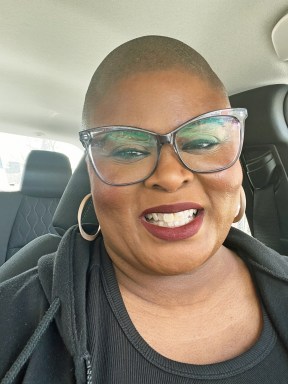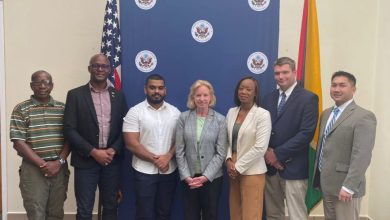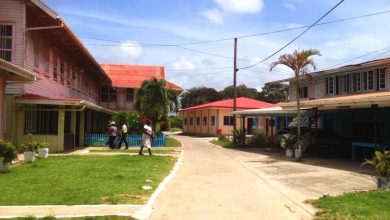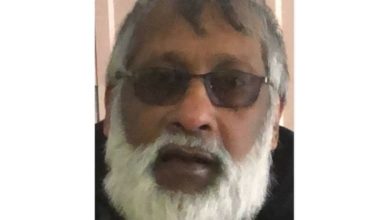Documentary to spotlight a Black woman’s journey with Long COVID

Chimere L. Smith Sweeney has been living with Long COVID for four years now. In New York, COVID was not addressed until the middle of February 2020. Sweeney was a teacher for several years in Baltimore at that time. She now lives in Poughkeepsie, NY.
“Teaching my students before COVID was exhilarating and exciting. After five years, I finally felt as if I was teaching my beautiful, brilliant students about tools for wise observation and using what they see to curate their own liberation,” she said.
Her very last day as a teacher in the classroom was March 13, 2020, and it is a day that will always be seared in her brain because it was the last day she felt connected to a traditional and accepted career.
Her experience with COVID started out with symptoms of confusion, migraines, diarrhea and then constipation, with back pain on March 22, 2020. Her symptoms morphed into life-threatening and life-changing within the first week.
“I felt abandoned by my body: as if every day, I was waking up in someone else’s body and barely thinking with their mind. I went from being healthy with mild eczema and allergies to not remembering my first and last name, a burning scalp, tongue, and eyes, my vision became impaired, muscular and joint weakness, and facial pain. There was so much pain, everywhere, all the time,” she added.
She knew that her symptoms were long-term after three weeks. From that day on, it just continued to get worse. “Each day, I woke up the same way. It was Groundhog Day every day and the worst prank was played on me,” she said.
Sweeney is now working on a documentary spotlighting her experience, as well as those of other Black people with Long COVID. Upon receiving more funding, she sees the film being completed in late 2025 or early 2026.
In regards to why Sweeney decided to create the documentary, she stated that her heart and mind changed late last year.
“I wanted to change the narrative, spirit, and attitude of my activism so that it metamorphosed into action versus reaction. What I know is that racism, sexism, and discrimination are pervasive. They will be here until we decide that they no longer fit the world we want to create. How I respond to it doesn’t have to be so vitriolic,” she stated.
Another reason why she wanted to create the documentary is because, “Black people also need an updated guide on how to navigate our public health system strategically and to become our own heroes.”
Sweeney added that the documentary shines a light on those, including Black men, who need a soft, supportive place to land in their storytelling. Culturally, I know we tend to feel more comfortable telling our stories to people who look like us. So cast members with #LongCovid will do interviews with me.
It means so much to her to have the financial support to create the documentary, as she wasn’t raised to dream or share her goals.
“I am helping little and early adult Chimére reach her potential and go beyond even that. I’ve always known I was smart, bright, and passionate: I just didn’t know those God-given characteristics would eventually help me raise $15,000 for my film as a disabled Black woman. So I didn’t receive support from places where I expected it but it was found in surprising ways,” she continued.
Although Sweeney is a complete novice as a filmmaker, she’s researching everything, and she’s cultivated a small, yet amazing team that she believes supports the intention of the film and wants it to be made.
“They champion this film. These are people who are disabled, members of the LGBTQIA+ community, and successful activists. Some of them know how to make films and can provide historical context on viral illnesses and the American public health system,” she stated.
According to Sweeney, they also understand the complicated relationship this system formed that further oppressed Black slaves who became American citizens. “They believe that there is a future for Black patients to advocate for themselves to receive healthcare that is equitable and inclusive.”
She wants Black people to know they are seen and heard, and their Long COVID stories matter and should be told. “History will try to tell white-washed stories of who suffered the most. But my film knows the truth. Black men have been largely avoided in Long COVID’s storied history. I aim to introduce some of these men to the world so that their experiences are viewed with safety, support, and care.”
Most of all, she wants the cultural memory of Black people to be saturated with inspiration and movement.
“Advocacy usually starts because one person wants to fix a problem that impacts them, and that’s okay. We don’t have to wholly reinvent the wheel. But we must acknowledge that our enslaved ancestors left us tools that will illuminate how we approach Long COVID healthcare and community care right now. We just have to learn and then be willing to use them.”




